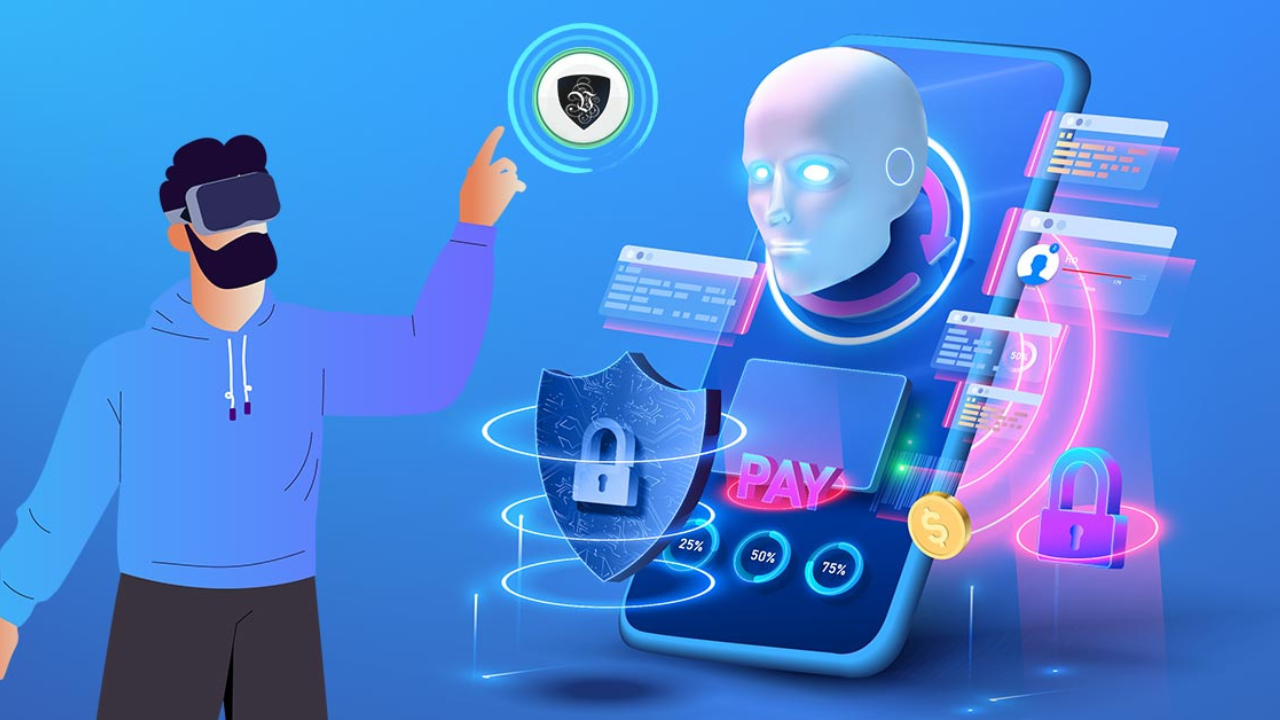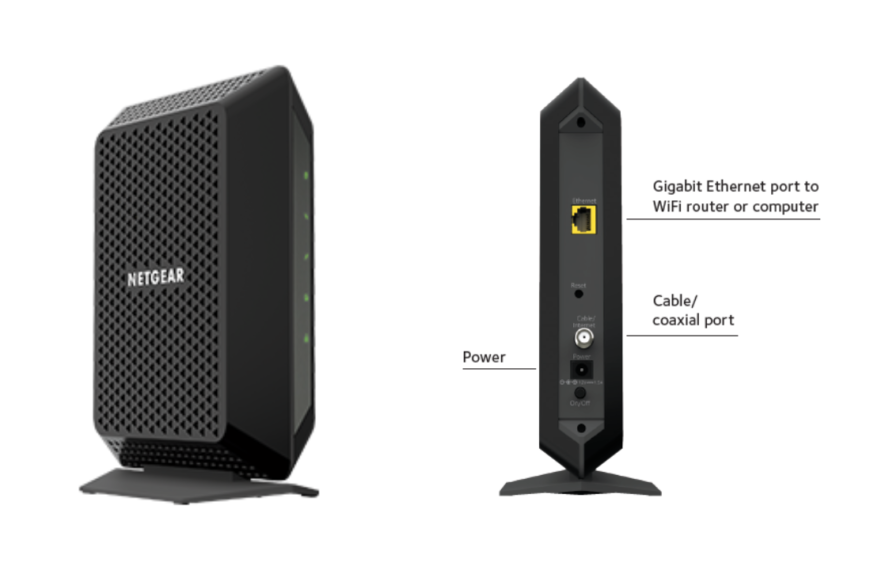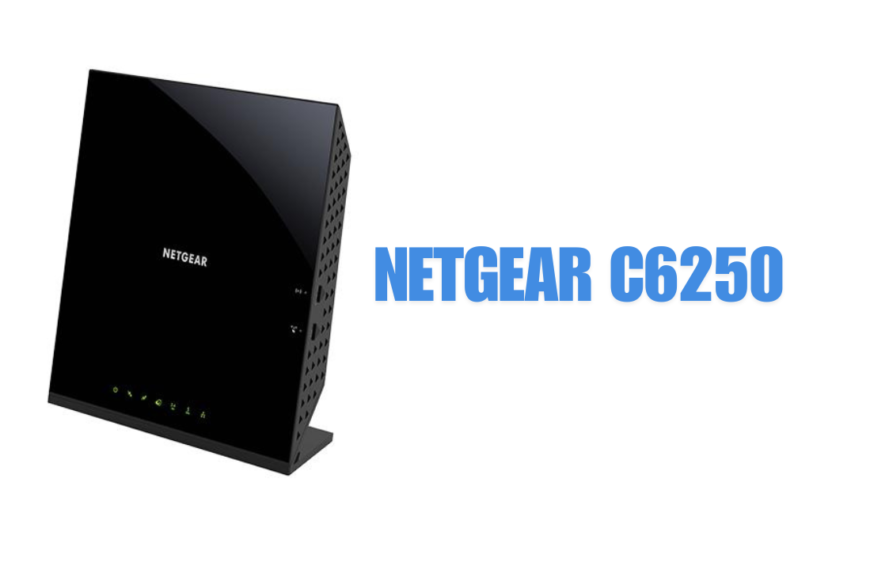Online privacy and data security are becoming increasingly critical as cyber threats evolve, and artificial intelligence (AI) continues to play a bigger role in cyberattacks. As we rely more heavily on the internet for both personal and professional activities, the risks associated with exposing sensitive information have grown. From hackers exploiting new technologies to sophisticated AI-driven attacks, the need for robust protection has never been greater. This is where Virtual Private Networks (VPNs) come in.
VPNs are no longer just optional tools for privacy-conscious individuals; they have become essential for anyone looking to safeguard their data. By encrypting your internet connection, a VPN makes it much harder for hackers, governments, and even internet service providers (ISPs) to monitor or access your online activities. VPNs essentially act as a shield, hiding your identity and encrypting your data, ensuring that your personal and sensitive information stays private.
In an age where online threats are becoming more advanced, the role of VPNs has grown from a privacy enhancement tool to a vital safeguard against the growing array of cyber risks. Whether you’re browsing the web, making financial transactions, or working remotely, VPNs ensure your activities remain secure and private. As AI continues to shape the landscape of cybersecurity, the need for VPNs as essential tools for protecting our online presence will only increase.
How Does a VPN Work?
A Virtual Private Network (VPN) works by creating a secure, encrypted connection between your device and the internet, providing a shield against potential threats and preserving your privacy while browsing. Let’s break down the main components of how a VPN achieves this:
Encryption:
At its core, a VPN encrypts your internet traffic, turning the data you send and receive into unreadable code. This encryption process ensures that even if hackers or malicious actors manage to intercept your connection, they cannot decipher your information. VPNs typically use strong encryption protocols, like AES-256, which is highly effective in securing your data against even the most advanced attacks. This encrypted “tunnel” prevents third parties, such as cybercriminals, from gaining access to sensitive details like passwords, financial information, or personal communications.
IP Masking:
Another essential feature of a VPN is its ability to hide your real IP address. When you connect to a VPN server, your device is assigned an IP address from that server, which replaces your original one. This IP masking is crucial for maintaining your anonymity online. It makes it significantly harder for websites, advertisers, or malicious entities to track your online activity or pinpoint your physical location. By masking your IP, VPNs create a veil of privacy, preventing you from being profiled or targeted based on your internet behavior.
Bypassing Censorship:
VPNs are also invaluable for users in regions where internet access is censored or geo-blocked. Whether it’s due to government-imposed restrictions, content licensing agreements, or regional access limitations, VPNs allow users to bypass these barriers by connecting to servers in different countries. For instance, if you’re in a country where certain websites or streaming services are blocked, a VPN allows you to access the content as if you were in a region where those restrictions don’t exist. This ability to bypass censorship opens up a world of information and entertainment, providing users with unrestricted internet access.
The Benefits of VPNs
VPNs offer a wide range of benefits, especially in an era where online privacy is under constant threat from various actors. Let’s look at the key advantages they provide:
Protection from Hackers and Online Trackers:
Cybercriminals are constantly looking for vulnerabilities to exploit, and without the right protection, your data can become a prime target. VPNs offer robust protection by securing your connection with encryption, which makes it much harder for hackers to steal your personal information. Additionally, VPNs block online trackers and advertisements, which often collect and sell your browsing habits. This protection is especially important when you’re using public Wi-Fi networks, which are common targets for hackers looking to intercept your sensitive information.
Preventing ISP and Government Surveillance:
In many regions, ISPs and governments track internet activity to monitor user behavior or enforce censorship. With a VPN, your browsing activity is hidden from your ISP, and it becomes far more difficult for any entity to monitor your online actions. This is particularly important for individuals who want to maintain their privacy while browsing, working remotely, or even communicating sensitive information. A VPN ensures that your data is kept confidential and out of the reach of surveillance practices, offering a higher level of freedom and privacy.
Securing Remote Work and Data Sharing:
As remote work continues to rise, so does the need for secure communication and file sharing. VPNs offer a vital solution for businesses and employees by securing data transfers and creating a private, encrypted connection to corporate networks. Whether you’re accessing files, sending emails, or engaging in video conferences, a VPN ensures that your work-related information remains safe from potential data breaches. This security is crucial for companies looking to protect proprietary information and sensitive client data.
Expanding Access to Global Content:
VPNs are a gateway to a wealth of global content that may otherwise be inaccessible due to geographic restrictions. Streaming services, websites, and apps often limit access to certain regions, either due to licensing agreements or government regulations. With a VPN, you can connect to servers in different countries, unlocking content as though you’re physically located in those regions. This gives users access to a broader range of entertainment, news, and educational resources, making VPNs an essential tool for those who want to experience the full extent of the internet, no matter where they are.
By offering privacy, security, and access to unrestricted content, VPNs have become indispensable tools in our increasingly connected world. Whether you’re protecting sensitive data, bypassing censorship, or simply enjoying online freedom, the benefits of using a VPN are clear.
VPN Market Growth & Adoption
The growth of the VPN market has been remarkable, as individuals and businesses alike seek enhanced online security and privacy in the face of rising cyber threats. Let’s explore the statistics and trends driving this expansion.
Statistics on the Increasing Adoption of VPNs Globally:
VPN usage has skyrocketed in recent years, with millions of users worldwide now utilizing VPN services. According to a report by GlobalWebIndex, more than 30% of internet users globally have used a VPN in the past month, and this figure continues to grow each year. The global VPN market is projected to grow at a compound annual growth rate (CAGR) of over 15% from 2023 to 2030, reaching a market value exceeding $100 billion by the end of the decade. This surge in adoption is largely driven by growing concerns over online privacy, cybercrime, and government surveillance. As more users recognize the risks associated with unsecured networks, VPNs have become a go-to tool for securing internet traffic and maintaining privacy.
Regional Trends in VPN Use:
VPN usage varies significantly across different regions, influenced by factors such as government regulations, internet freedom, and regional cyber threats.
- North America:
In North America, VPN usage has grown rapidly, particularly in the United States and Canada. A significant driver of VPN adoption in this region has been heightened concerns over privacy issues, especially after high-profile data breaches and increased government surveillance. According to various surveys, over 25% of internet users in the U.S. use a VPN regularly, and this number continues to rise. The demand for secure, private browsing and unrestricted access to global content, such as streaming services, is also a major factor. With the growing awareness of online threats, both individual users and businesses are increasingly turning to VPNs as part of their cybersecurity toolkit. - Asia-Pacific:
The Asia-Pacific region has seen some of the most dramatic increases in VPN adoption, driven by a combination of government censorship, data privacy concerns, and the rise of cyber threats. In countries like China and India, VPNs are crucial for bypassing internet restrictions and accessing content that would otherwise be unavailable. For instance, China’s strict “Great Firewall” has led to a significant demand for VPNs as users seek to access blocked websites and social media platforms. In countries like Japan, South Korea, and Australia, growing concerns about online tracking, data breaches, and increasing cybersecurity threats are also contributing to the rise in VPN usage. The region is expected to lead the VPN market in terms of growth, as both individuals and businesses look for ways to safeguard their data and protect online activities.
The Rise in VPN Use Due to Growing Cyberattacks and the Shift to Remote Work:
A key factor driving the surge in VPN adoption is the increasing frequency and sophistication of cyberattacks. As hackers become more adept at exploiting vulnerabilities in networks, VPNs have become an essential line of defense. Ransomware attacks, phishing schemes, and data breaches are all rising threats that VPNs help mitigate by providing secure, encrypted connections that prevent unauthorized access to sensitive data.
Additionally, the COVID-19 pandemic accelerated the shift to remote work, further boosting the demand for VPNs. With employees working from home and relying on unsecured networks, businesses and individuals turned to VPNs to secure remote connections to corporate networks. The need for secure communication, file sharing, and data access has made VPNs a critical tool for remote work environments. As more companies adopt hybrid or fully remote work models, VPNs will continue to play a central role in protecting sensitive business data and maintaining secure online operations.
The growth and adoption of VPNs globally reflect the increasing importance of online privacy and security in the face of escalating cyber threats and evolving work environments. Whether for personal protection, access to restricted content, or business security, VPNs are becoming an essential tool for internet users around the world.
The Impact of Emerging Technologies on VPNs
As technology continues to evolve, so too does the landscape of online privacy and security. Emerging technologies like quantum computing, AI, 5G, blockchain, and others are shaping the future of VPNs. Let’s explore how these technologies are influencing VPN development, security, and performance.
Quantum Computing: Potential Threats to VPN Encryption and the Need for Post-Quantum Cryptography
Quantum computing, while still in its early stages, poses significant implications for encryption standards used in VPNs. Current encryption methods, such as RSA and ECC (Elliptic Curve Cryptography), rely on the complexity of certain mathematical problems that quantum computers could potentially solve much faster than classical computers. This could render traditional VPN encryption vulnerable to future attacks.
There’s a growing push for post-quantum cryptography (PQC) — a new generation of encryption algorithms designed to be secure even against the computational power of quantum machines. VPN providers and cybersecurity experts are already exploring these cryptographic methods to future-proof their services. As quantum computing advances, the transition to PQC will be critical for maintaining the security of VPN connections.
AI and Machine Learning: Enhanced Security and Personalized VPN Services
Artificial intelligence (AI) and machine learning (ML) are becoming integral parts of the VPN landscape, enhancing both security and user experience.
- Enhanced Security: AI can detect abnormal patterns in network traffic that may indicate a cyberattack or data breach. By continuously learning from data and identifying emerging threats in real-time, AI-powered VPNs can offer a higher level of protection against sophisticated threats such as malware, ransomware, and phishing attacks.
- Personalized VPN Services: Machine learning also helps tailor VPN services to individual users’ needs. AI can optimize server selection for faster speeds, recommend security features based on usage patterns, and even predict and prevent potential security risks. As AI continues to improve, personalized VPN experiences will become more common, providing users with better security, speed, and convenience.
5G and Edge Computing: Faster Speeds and Decentralized Networks Affecting VPN Performance and Security
The advent of 5G technology promises faster internet speeds, lower latency, and improved connectivity. This will significantly impact VPN performance by providing users with the ability to maintain secure, encrypted connections at speeds that were previously challenging to achieve with 4G networks.
However, faster speeds also introduce new challenges. With more data being transmitted at higher speeds, VPNs will need to adapt to handle the increased traffic while ensuring encryption does not cause bottlenecks or latency issues. In this context, edge computing, which decentralizes data processing closer to the user’s location, could complement VPNs by providing faster access to secure services while reducing the load on centralized servers.
While these advancements promise better VPN performance, they also require a more robust approach to ensure that the heightened speed does not compromise security.
Blockchain Technology: The Potential of Decentralized VPNs (VPNs) and Increased Transparency
Blockchain technology is making its way into the VPN space, with decentralized VPNs (VPNs) offering new levels of privacy and transparency.
- Decentralized VPNs: Unlike traditional VPNs, which rely on centralized servers owned by a single provider, dVPNs utilize blockchain to distribute network traffic across a decentralized network of nodes. This not only enhances security but also ensures that there is no central point of failure, making it harder for hackers or government entities to monitor or compromise the network.
- Increased Transparency: Blockchain technology’s inherent transparency provides users with a level of accountability. Through immutable records and smart contracts, dVPN services can offer verifiable proof of no-logging policies, ensuring users’ privacy is maintained. This growing focus on decentralization and transparency could redefine how VPN services operate, shifting away from centralized control to user-powered networks.
Zero Trust Architecture: How This Approach Challenges and Complements Traditional VPNs
Zero Trust Architecture (ZTA) is a security framework that assumes no user or device is trusted by default, regardless of whether it’s inside or outside the corporate network. ZTA requires continuous verification of every user, device, and connection.
- Challenge to Traditional VPNs: Traditionally, VPNs relied on a perimeter-based security model, where once a user connected to the network, they were trusted. However, Zero Trust challenges this by applying strict authentication and authorization at every level of access. This can be seen as an evolution beyond traditional VPNs, where the network perimeter is no longer the main focus.
- Complementing VPNs: While Zero Trust challenges the traditional VPN model, it can also complement VPNs by integrating them into a more robust security framework. VPNs can be used to secure access to specific resources, while ZTA ensures continuous verification, making it harder for cybercriminals to infiltrate networks. Combining VPNs with Zero Trust principles could lead to a more secure, layered approach to online privacy and data protection.
IoT: The Role of VPNs in Securing the Growing Number of Connected Devices
The rapid proliferation of Internet of Things (IoT) devices presents new challenges for online security and privacy. From smart home appliances to industrial equipment, IoT devices are constantly sending and receiving data, often over unsecured networks. This makes them vulnerable to cyberattacks, data breaches, and surveillance.
VPNs play a crucial role in securing IoT devices by providing an encrypted tunnel through which data can safely travel, preventing unauthorized access. As IoT continues to expand, VPNs will become increasingly important for securing not only traditional computers and smartphones but also the vast ecosystem of connected devices. By integrating VPNs with IoT security strategies, users can mitigate risks such as device hacking and data theft.
Why Starting a VPN Business is Profitable
As the digital world grows and more data is exchanged online, privacy and security concerns are at the forefront of individuals’ and businesses’ minds. With the increasing frequency of cyberattacks, identity theft, and government surveillance, the demand for tools to safeguard online activity, like VPNs (Virtual Private Networks), has skyrocketed. This surge in demand, coupled with the low operational costs and global market opportunities, makes starting a VPN business a profitable venture. Let’s break down why this business is thriving.
Growing Demand for Privacy in the Digital Age
In an era where personal data is constantly being collected, monitored, and sold, individuals and companies are more aware of the need to protect their online activities. The growth of cyber threats, AI-driven attacks, and increasing government surveillance policies worldwide has only fueled the desire for privacy. This growing concern for privacy is especially pronounced in regions with stricter online censorship, where VPNs are seen as essential tools for bypassing restrictions and maintaining anonymity.
As a result, more users are seeking reliable and secure VPN services to protect their online identities, personal data, and browsing history. Businesses, too, are leveraging VPNs to secure remote work environments and protect sensitive corporate data. The consistent increase in digital privacy awareness and demand for data protection makes the VPN industry not just viable but highly profitable.
Recurring Revenue Models and Low Operational Costs
One of the main advantages of starting a VPN business is the recurring revenue model. VPN providers typically charge customers on a subscription basis—monthly, yearly, or even longer periods. This creates a stable and predictable income stream, making it easier to forecast and plan business growth. Subscriptions also ensure customer loyalty, as long-term users tend to stick with a service they trust for privacy and security.
Moreover, the operational costs associated with running a VPN service are relatively low compared to many other tech businesses. The infrastructure needed—servers, network capacity, and support services—can be managed efficiently with the right partnerships. VPN providers can also take advantage of cloud services to reduce the need for physical hardware and decrease overall operational expenses. This makes it a highly scalable business with substantial profit potential, especially when operating in global markets.
Global Market Potential and Scalability of VPN Businesses
The global market for VPNs is vast, and it’s expanding rapidly. The demand is not limited to any particular region—privacy concerns are universal, and the need for secure internet connections is growing in both developed and developing countries. As internet penetration increases worldwide, particularly in regions with significant internet censorship, VPN providers have a large potential customer base.
Additionally, as the world shifts to a more globalized digital environment, remote work, online streaming, and cross-border data sharing continue to rise. This creates an opportunity for VPN businesses to tap into various markets across continents. Whether catering to individuals seeking privacy or businesses requiring secure networks for remote teams, the scalability of VPN services ensures businesses can grow and expand internationally without major logistical or regulatory barriers.
How to Start a VPN Business
Starting a VPN business can be a rewarding opportunity, but it requires a solid understanding of the technology, market, and operational strategies. Whether building a VPN from scratch or leveraging white-label solutions, the entry point into the VPN business requires thoughtful planning and a good business model. Let’s explore both pathways.
Building a VPN from Scratch: The Technical Requirements, Pros, and Cons
Building a VPN from scratch involves developing the necessary infrastructure, software, and network architecture to provide secure and reliable VPN services. While this option offers complete control over the product, it comes with several technical and financial challenges.
Technical Requirements:
- Infrastructure: You need a network of secure servers across multiple locations. These servers form the backbone of your VPN service, allowing users to connect through different regions and bypass geographical restrictions.
- Encryption Protocols: Implementing robust encryption methods, such as OpenVPN, IKEv2/IPSec, or WireGuard, is essential for ensuring data privacy and security.
- Software Development: You’ll need to either develop or purchase a VPN application for various platforms, including desktop, mobile, and browser extensions.
- Security Measures: As a VPN provider, you must adhere to strict security protocols to ensure users’ data remains protected. This includes firewalls, anti-DDoS measures, and secure key management.
Pros:
- Full Control: You have complete control over your product, ensuring the service is tailored to your specific vision and business model.
- Brand Identity: You can create a unique brand identity and offer custom features that stand out in the marketplace.
- Profit Margins: Since you’re not relying on third-party solutions, profit margins can be higher.
Cons:
- High Initial Costs: Building a VPN infrastructure from scratch requires significant investment in server infrastructure, software development, and security features.
- Technical Expertise: You need a skilled team of network engineers, security experts, and software developers to ensure the VPN is functional, secure, and reliable.
- Maintenance: Ongoing maintenance, updates, and server management require time, resources, and costs, especially as the business scales.
White-Label VPN Solutions: A Faster, Cost-Effective Route for Entrepreneurs to Enter the VPN Market
For entrepreneurs looking to enter the VPN market quickly and cost-effectively, white-label VPN solutions offer an attractive alternative. A white-label VPN provider offers ready-to-use VPN services and infrastructure that you can brand and resell under your own name. This allows you to focus on marketing and customer acquisition rather than building the entire technical foundation.
Pros:
- Faster Launch: White-label VPN solutions allow you to launch your business much faster than building from scratch, as the technical setup is already done.
- Cost-Effective: With minimal upfront investment, white-label services are far more affordable, as you don’t have to build infrastructure or develop the software yourself.
- Customization: Most white-label providers offer the option to add your brand and logo to the service, allowing for some customization in features and pricing plans.
Cons:
- Limited Control: With white-label VPNs, you’re relying on the underlying provider for the technical side of the service. This limits your ability to add unique features or tweak the infrastructure as needed.
- Profit Sharing: White-label solutions typically require you to share profits with the provider, reducing overall margins compared to a self-built VPN service.
- Dependence on Third-Party Service: If the white-label provider experiences downtime or technical issues, your service will be affected as well, impacting your reputation and user experience.
Read more: Eight Technologies You Might Not Know Exist
Conclusion
The growing reliance on the internet for nearly every aspect of life, coupled with increasing cyber threats, surveillance, and privacy concerns, has made VPNs indispensable tools for safeguarding online activities. VPNs offer critical protection against hackers, trackers, and data breaches, while providing the anonymity necessary to maintain privacy in an interconnected world. Their ability to circumvent censorship, ensure secure remote work, and expand access to global content solidifies their place as essential technologies for both individuals and businesses.
The future of VPNs is shaped not only by the increasing need for online privacy but also by the advancements in emerging technologies. Innovations in AI, blockchain, quantum computing, and decentralized networks will undoubtedly impact the evolution of VPN services, driving improvements in security, performance, and user experience. At the same time, the demand for VPN services continues to grow globally, creating vast opportunities for entrepreneurs looking to tap into this rapidly expanding market.
Starting a VPN business today is not only a smart move in terms of profitability but also an investment in a future where digital privacy remains a top priority. Whether choosing to build a VPN from scratch or leveraging white-label solutions, entrepreneurs can carve out a successful niche in the privacy-conscious digital landscape.
















